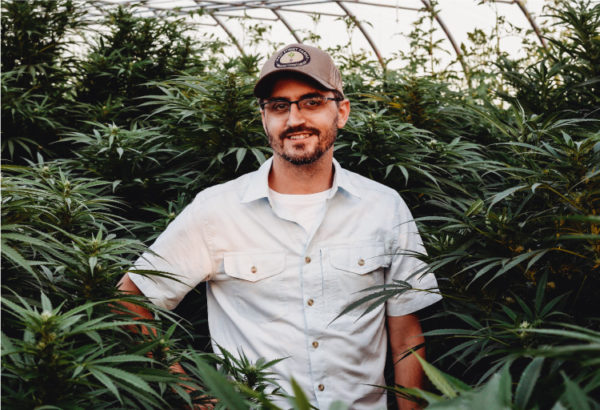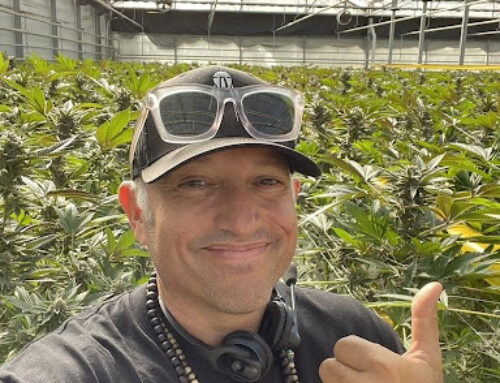New York Cannabis Industry Leaders Unveil Roadmap To Equitable Cannabis Marketplace
NEW YORK CITY- The New York Cannabis Growers and Processors Association is an industry association that represents farmers, processors and other businesses in cannabis. The NYCGPA represent growers, processors, retailers, prospective license-holders, sponsors, and other donors in an effort to ensure that the cannabis industry forming in the wake of legalization is one which benefits NYS stakeholder businesses specifically, and small and midscale operators more broadly.
#1 New York Cultivators First
To ensure that the goals of equity are met, the NYCGPA believes that New York based small businesses must be given the opportunity to participate in the market from the outset. When dispensaries open their doors, there will be a massive demand for product. This demand can be met by a combination of existing hemp growers and social equity cultivators, but only if these applicants are given special priority and authorized to begin cultivation with enough lead time to adequately ramp up operations ahead of the expected opening of dispensaries. Without such priority, only the 10 currently operating medical cannabis Registered Organizations will be able to meet demand – a situation that is antithetical to the goals of the MRTA.
Further, in order to fully realize the sustainability goals of the MRTA and encourage sun-grown production, authorization must be given to cultivators prior to May 15th due to the unique climate and daylight cycles of New York.
The NYCGPA urges the legislature to direct the CCB to authorize, through provisional, priority licensing, or other such means deemed necessary, enough individually licensed cultivators to meet the demand of retailers beginning the day they are authorized to start recreational sales.
#2 Reducing the Tax Burden from 280E
Due to federal prohibition, plant-touching cannabis businesses are required by the IRS to pay income tax, but yet are not allowed to deduct standard expenses besides documented Cost of Goods Sold. This means that businesses, such as dispensaries, end up effectively paying up to 75% tax.
The NYCGPA supports the passage of S7518, introduced by Senator Cooney, that would decouple the New York State and federal tax code in regard to 280E. This is a necessary step to ensure that our cannabis businesses have a path to profitability and social equity entrepreneurs can build wealth. The proposed bill provides a solution that would allow New York cannabis businesses to take ordinary and necessary business deductions, at the state level, without the obstacle of 280E of the Internal Revenue Code. Without a federal solution, the tax savings provided at the state level will make a significant difference for cannabis businesses.
#3 Removing the Prohibition on Processors
Current statutory language would prohibit adult-use processors from also engaging in activities related to their cannabinoid hemp processing license on the same premise. This prohibition could create significant additional costs for cannabinoid hemp processors looking to utilize existing infrastructure to process THC products. This can be done in a manner that is safe and compliant without risk for cross contamination.
The NYCGPA supports the removal of language from Article IV, § 69(3) that prohibits hemp activities on the same premises as adult-use licensed activities. The legislature can easily address this issue by removing the prohibitory language in Article IV and preserve the ability for adult-use and hemp operations to contiguously operate.
The primary rational for removing this prohibition is the transferability of existing infrastructure across New York’s cannabinoid hemp and adult-use programs will be essential for the creation of a robust and diverse adult-use marketplace. Such transferability supports cost-effectiveness, compliance, quality control, innovation, and energy efficiency while simultaneously reducing barriers to entry—a high priority for the state’s currently licensed and compliant cannabinoid hemp processors. As the state develops the structure of its adult-use marketplace, it is crucial that such locally-owned, demonstrably compliant, and experienced operators do not get left behind and are able to compete with well-financed medical Registered Organizations on a reasonably level playing field. Multi-purpose facilities are, therefore, indispensable for realizing a market by New Yorkers and for New Yorkers that is safe, innovative, and representative of the immense diversity of our great state.
#4 Removal of the THC-Based Excise Tax
If implemented, New York would be the first state government to tax cannabis by calculating a product’s THC content. This novel, but highly flawed, approach will increase the compliance burden on producers and result in potentially hundreds of millions of dollars in miscalculated taxes. This tax scheme would also result in an uneven price effect on different product categories, which could dampen innovation especially for consumables. Creating a THC tax could also incentivize laboratories to underreport THC products in a bid for larger market share. Overall, the unproven method of taxation based on THC levels is an unnecessary risk that will most certainly have its largest negative consequences seen on small businesses.
We urge the legislature to remove the THC-based excise tax before regulations are adopted. The NYCGPA supports the position that any taxes levied should be done at the point of sale, as proposed in the original versions of the MRTA.
#5 Ensuring a Level Playing Field in the Marketplace
New York lawmakers took a unique and lauded step toward ensuring equity by restricting vertical integration. Similar to the State’s alcohol regulatory structure, businesses that are licensed for production (nursery, cultivation, processing) or distribution may not also engage in retail, and vice versa. However, there are two carve-outs for vertical prohibition– microbusinesses and Registered Organizations .
Microbusinesses will have their production capped and can only sell products that they produce – a model similar to farm breweries/wineries/cideries in the Alcohol Beverage Control (ABC) Law. However, the ten Registered Organizations would be the only companies in the state that can be vertically integrated, while operating at a larger production level than any other operator and retail other products in their dispensaries.
The NYCGPA supports a level playing field for all adult-use licensees, including the Registered Organizations. We urge the legislature to modify the Cannabis Law by restricting vertical integration for Registered Organizations.
#6 Defining Cannabis as an Agricultural Crop
Current Agriculture & Markets Law affords numerous protections for farmers in relation to land use, taxes, and zoning. As cannabis begins to play an important role in New York’s agricultural sector, it’s important that cultivators are provided similar protections to ensure the longevity of craft cultivation.
The NYCGPA supports legislation that would amend subdivision 2 of section 301 of the Agriculture & Markets Law to include cannabis in the definition of a crop. Further, the NYCGPA supports amending Paragraph 6 of subdivision (a) of section 1115 of the Tax Law to allow for cannabis cultivators to use standard tax exemptions when purchasing materials and vehicles used in the cultivation process.
Find out more here about the NYCGPA with details of how to join.




































